How to Create and Control Spotlights in After Effects
Introduction to Using Spotlights in After Effects
Step 1: Open Your Project with 3D Layers
Start by opening your After Effects project that contains 3D layers, such as 3D shapes or text. Make sure the layers you want to light up are set as 3D by enabling the 3D Layer switch (the cube icon) in the timeline.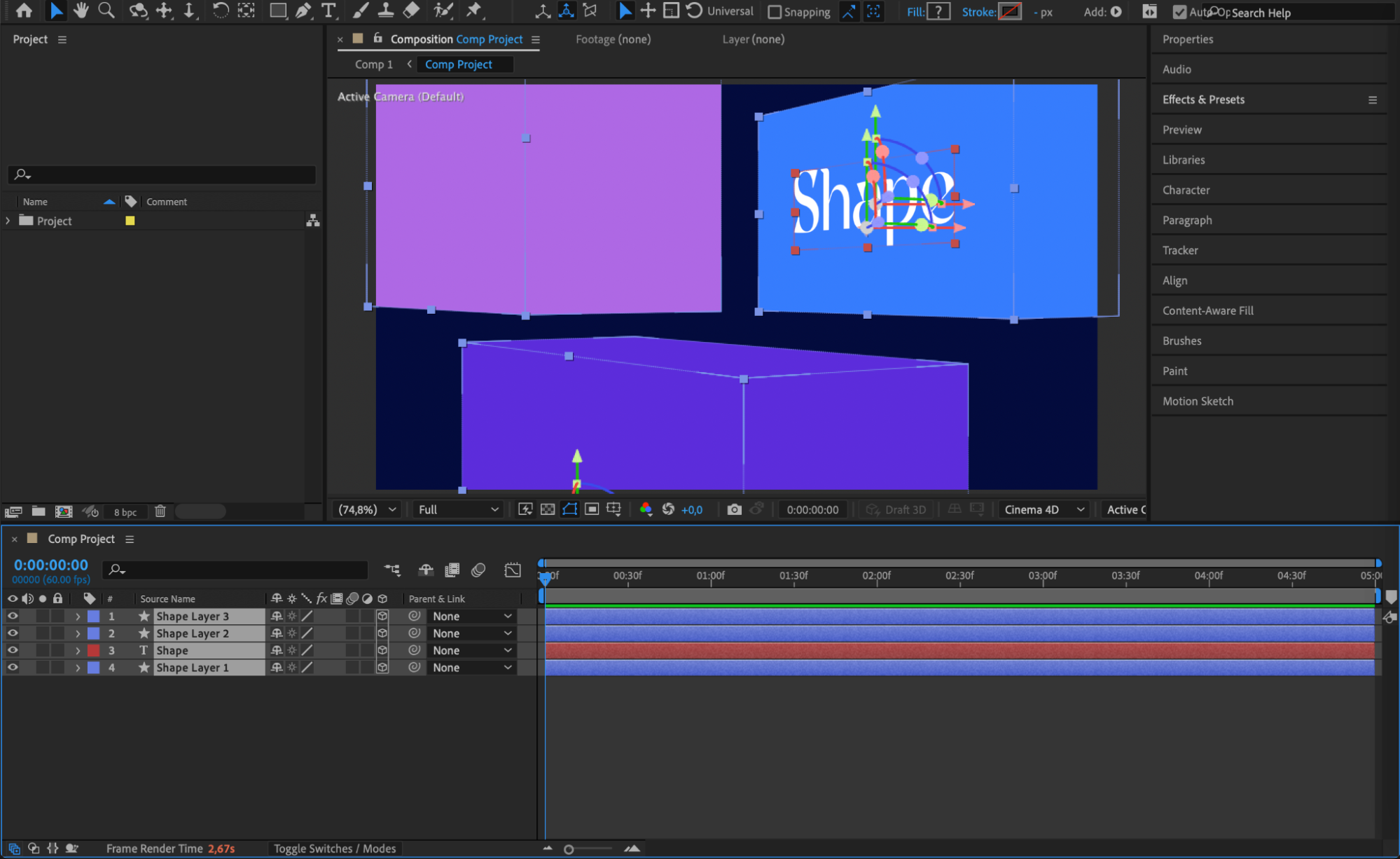 Step 2: Add a New Spotlight
Step 2: Add a New Spotlight
Go to the Layer menu, choose New > Light. In the Light Settings window, select “Spot” as the Light Type. This creates a focused, directional beam of light, similar to a flashlight.
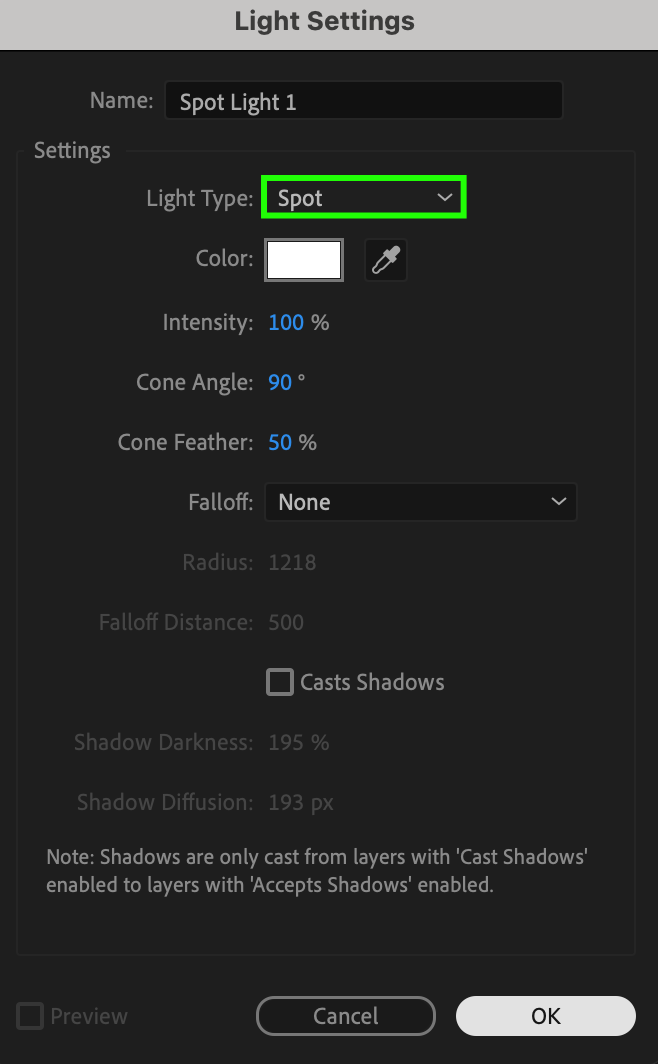
Get 10% off when you subscribe to our newsletter
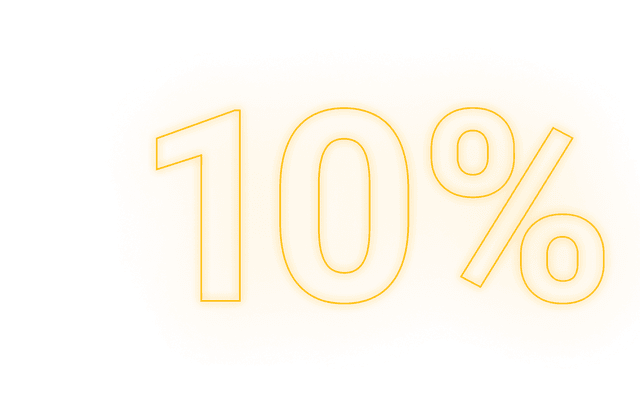
Step 3: Adjust Spotlight Settings
After creating the spotlight, twirl down its properties in the timeline. Adjust settings such as Intensity, Color, Cone Angle, and Radius to create the desired look for your spotlight. These settings will control how wide, strong, and colored your light beam appears. Step 4: Duplicate the Spotlight
Step 4: Duplicate the Spotlight
Select your spotlight layer and duplicate it twice (Ctrl/Cmd + D) to create multiple sources of focused lighting. This adds depth and complexity to your scene by using several overlapping lights.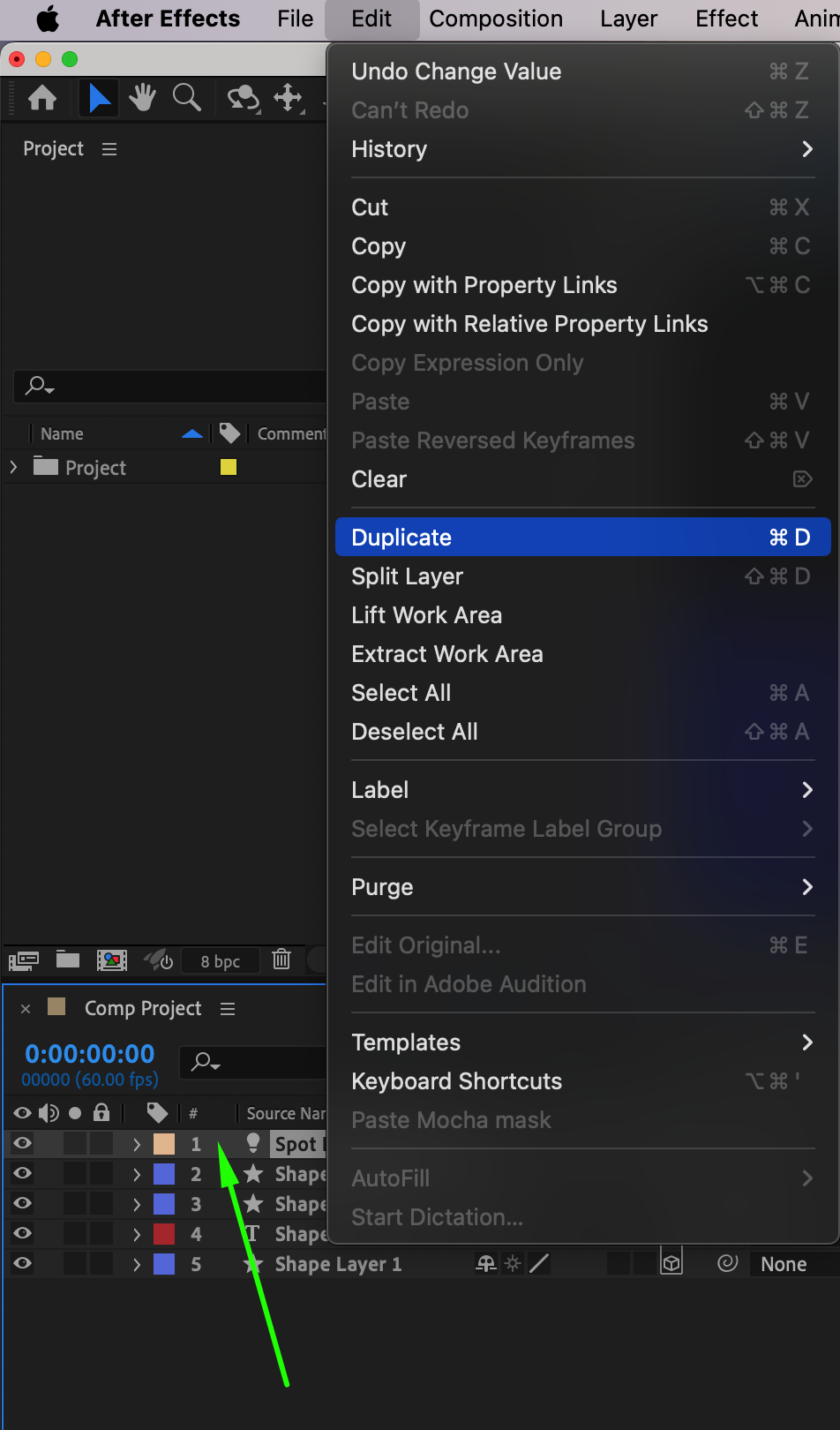 Step 5: Use 2 Views and Top View for Easy Positioning
Step 5: Use 2 Views and Top View for Easy Positioning
In the bottom-left corner of the Composition panel, switch from 1 View to 2 Views. Set one view to Top. This allows you to move your lights easily in a top-down view while simultaneously seeing the final result in Active Camera view.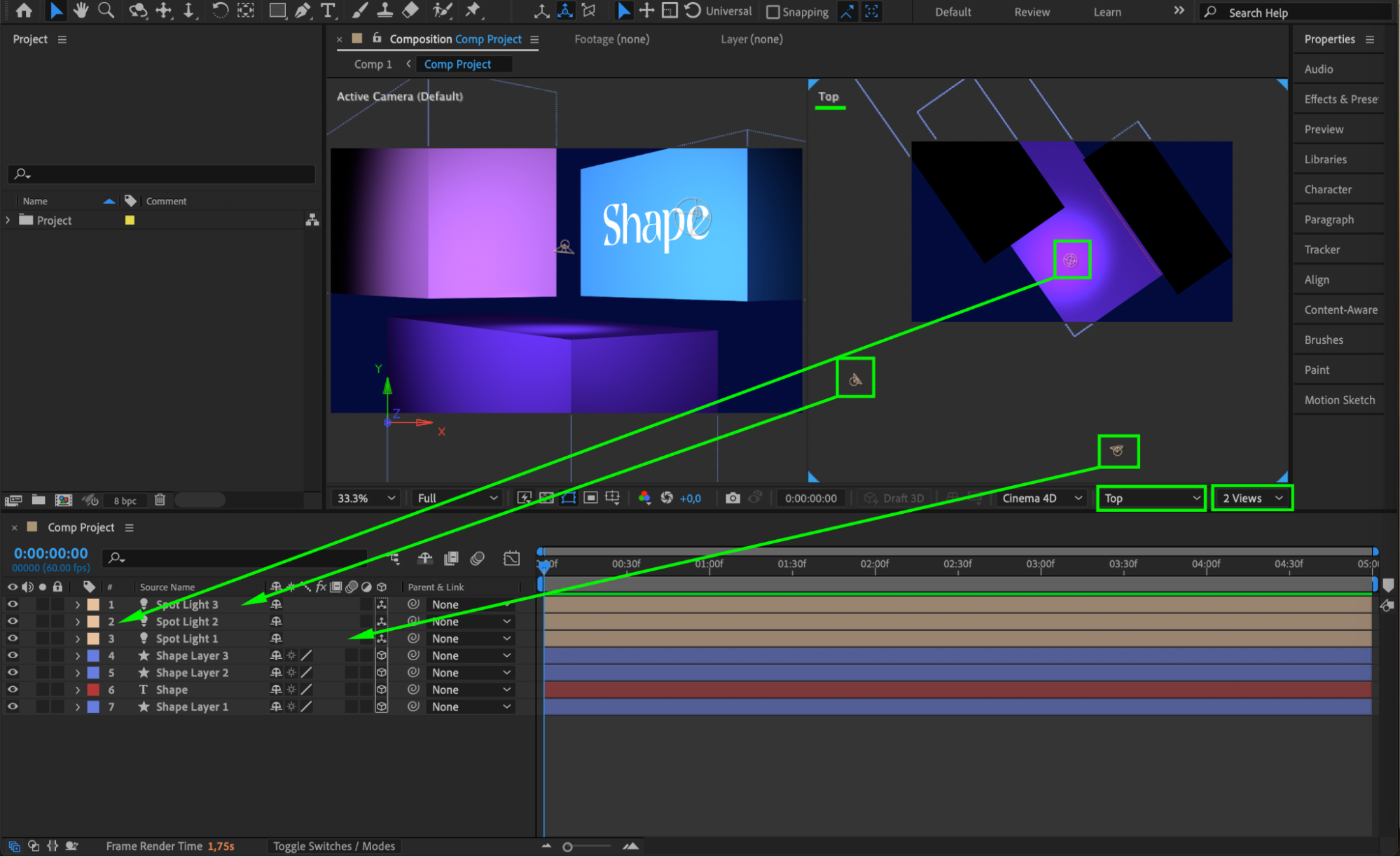
Step 6: Control Light Distance Using Z Position
If you need to move the light source closer or farther from your objects, adjust the Z Position value. Increasing the Z value moves the light farther away; decreasing it moves the light closer to the scene.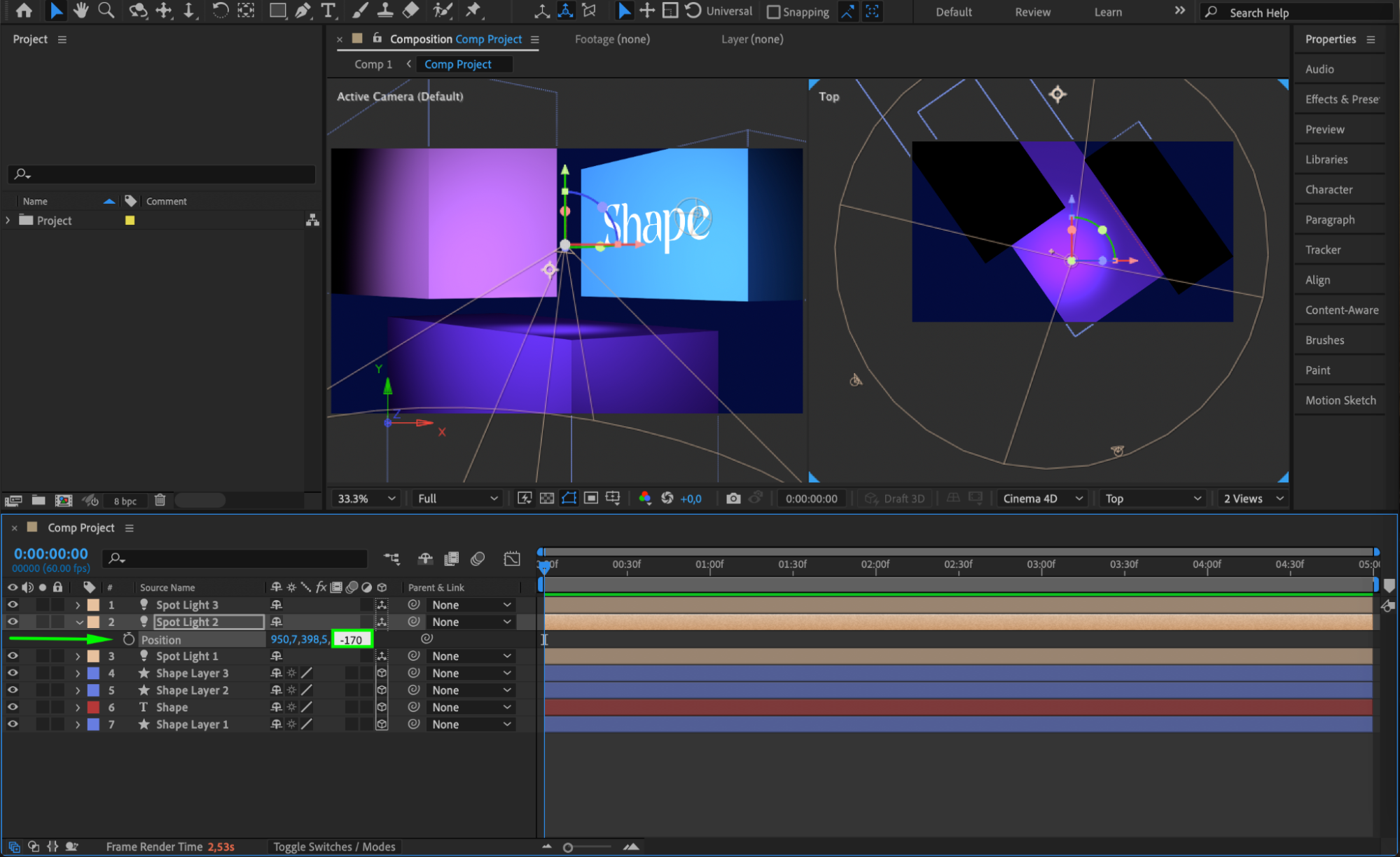 Step 7: Create and Position More Lights
Step 7: Create and Position More Lights
Create as many spotlights as you need to achieve the desired lighting mood. Adjust the rotation (X, Y, and Z) and position of each light to highlight different parts of your 3D objects.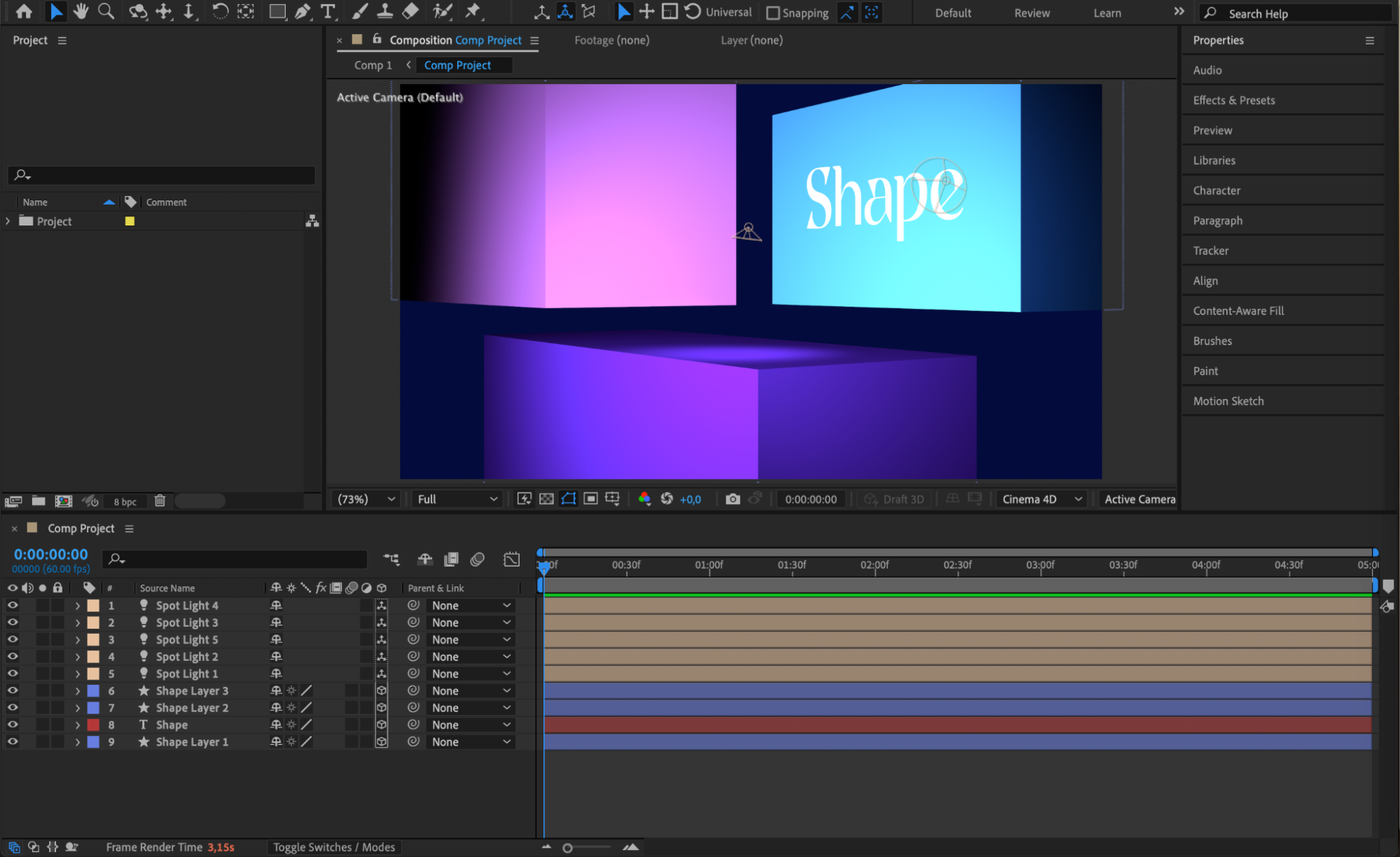 Step 8: Enhance with Adjustment Layers and Effects
Step 8: Enhance with Adjustment Layers and Effects
For a more polished look, add a New Adjustment Layer and apply effects like Glow, Curves, or Exposure. This can help blend the lights into the scene and create a more cinematic or stylized effect.
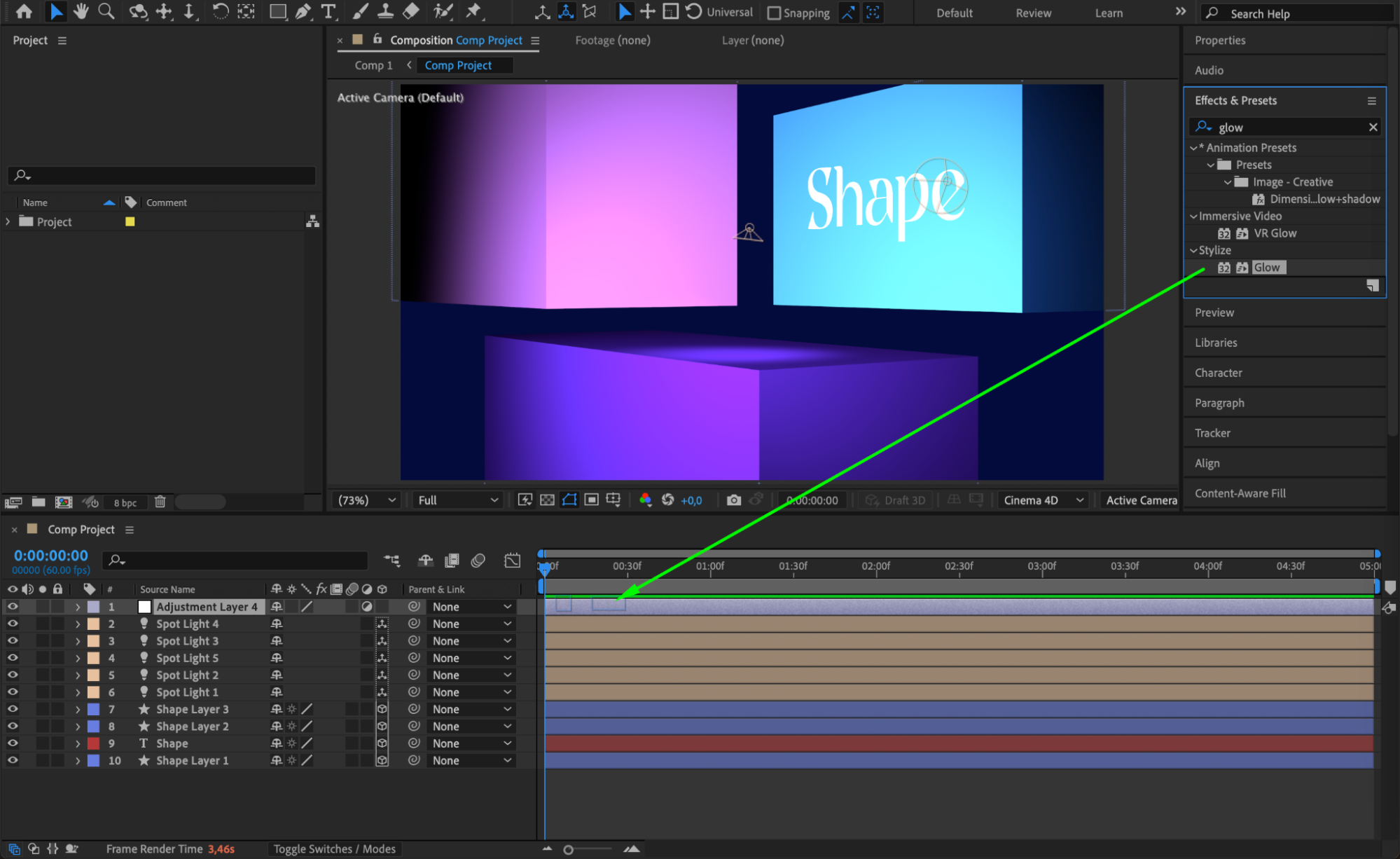
 Step 9: Preview and Fine-Tune
Step 9: Preview and Fine-Tune
Preview your animation by pressing the spacebar. Watch how the lights interact with your 3D layers and adjust settings as needed to achieve the perfect atmosphere.
Conclusion
Using spotlights in After Effects can dramatically enhance the depth, realism, and mood of your 3D scenes. By carefully positioning lights, adjusting their properties, and using additional effects, you can create powerful, cinematic lighting setups that make your projects stand out.


